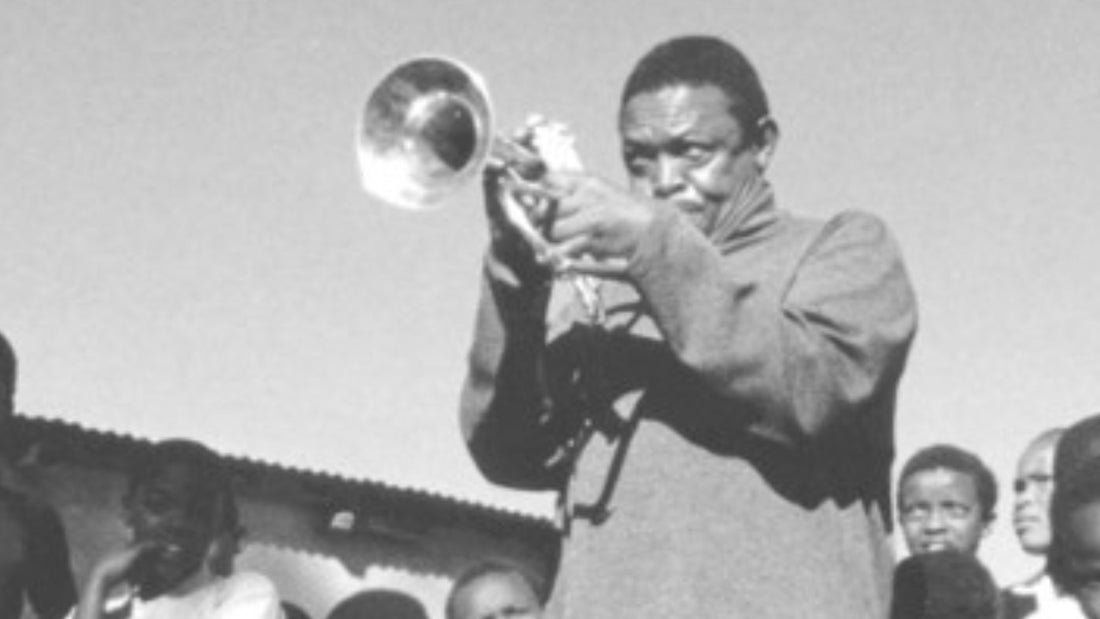Introduction: Hugh Masekela, a South African trumpeter, flugelhornist, composer, and singer, left an indelible mark on the global music scene with his pioneering fusion of jazz, funk, and traditional African rhythms. His life and music are deeply intertwined with the historical context of apartheid-era South Africa, the struggle for liberation, and the universal quest for freedom and justice. In this in-depth article, we'll explore the remarkable journey of Hugh Masekela, examining key moments in his life, his significant contributions to music, and his enduring legacy through his best vinyl records.
Early Life and Influences: Hugh Ramapolo Masekela was born on April 4, 1939, in Witbank, South Africa, during a time when the oppressive apartheid regime cast a shadow over the country. From an early age, Masekela showed a prodigious talent for music, inspired by his father, who was a health inspector and a jazz lover. He began playing the piano at six and later switched to the trumpet, which would become his signature instrument.

In the 1950s, Masekela was exposed to the vibrant jazz scene in Johannesburg, where he encountered musicians like Dollar Brand (later known as Abdullah Ibrahim) and Kippie Moeketsi, who mentored and influenced him. However, the brutal realities of apartheid forced Masekela into exile in the 1960s, a period that profoundly shaped his music and activism.
Musical Career and Activism: Masekela's musical journey took him to various corners of the world, where he collaborated with renowned artists and absorbed diverse musical influences. In 1963, he released his debut album, "Trumpet Africaine," which showcased his unique blend of jazz, African rhythms, and soulful melodies. This was followed by several groundbreaking albums, including "The Emancipation of Hugh Masekela" (1966) and "Hugh Masekela's Latest" (1967), which established him as a leading figure in the global jazz scene.
Throughout his career, Masekela used his music as a tool for social commentary and activism, highlighting the injustices of apartheid and advocating for freedom and equality. His iconic song "Stimela (The Coal Train)" poignantly captured the plight of black South African miners, while "Soweto Blues," written by his former wife, the late Miriam Makeba, mourned the victims of the Soweto Uprising in 1976.
Best Vinyl Records and Release Dates:
"Home Is Where the Music Is" (1972): Recorded live at The Market Theatre in Johannesburg, this album captures the raw energy and spirit of Masekela's performances, showcasing his improvisational skills and dynamic stage presence. Release Date: 1972
"Hope" (1994): Released during the post-apartheid era in South Africa, "Hope" is a powerful testament to Masekela's optimism and resilience. Featuring uplifting tracks like "Bring Him Back Home (Nelson Mandela)," the album celebrates the triumph of freedom over oppression. Release Date: 1994
"Grazing in the Grass" (1968): This iconic instrumental track, featuring Masekela's infectious trumpet melody, topped the charts in the United States and remains one of his most recognizable hits. Release Date: 1968
"Jabulani" (2012): In this album, Masekela collaborates with South African jazz pianist Larry Willis to create a mesmerizing blend of jazz, African rhythms, and contemporary influences. Tracks like "Mma Khotso" and "Lakutshon' Ilanga" reflect Masekela's lifelong commitment to celebrating his cultural heritage. Release Date: 2012
Legacy and Impact: Hugh Masekela's influence extends far beyond the realm of music, encompassing his role as a cultural ambassador, activist, and mentor to future generations of artists. His enduring legacy is felt not only in his groundbreaking musical contributions but also in his unwavering commitment to social justice and human rights. As we reflect on his remarkable life and career, we are reminded of the transformative power of music to inspire, unite, and uplift people across the globe. Hugh Masekela may have passed away in 2018, but his music and message continue to resonate with audiences worldwide, ensuring that his legacy will endure for generations to come.
